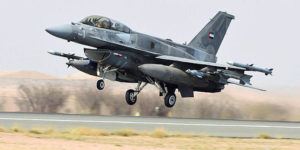by WorldTribune Staff, August 24, 2016
The U.S. continues to base some 5,000 military personnel in the UAE despite that country’s drifting away from the U.S. in the wake of last summer’s nuclear deal with Iran, a Congressional Research Service report said.
UAE’s regional policy “is becoming increasingly assertive, in some cases not necessarily acting in concert with the United States but rather with some allies of the Gulf Cooperation Council (Saudi Arabia, Kuwait, UAE, Bahrain, Qatar, and Oman),” the report said.

“The UAE’s assertiveness might reflect doubts about the U.S. security commitment to the GCC states after the United States negotiated the July 2015 comprehensive nuclear deal (Joint Comprehensive Plan of Action, JCPOA) with Iran.”
Abu Dhabi’s moving away from the U.S. as its top security partner would be hugely significant, analysts say. UAE was the first Gulf state to order America’s most sophisticated missile defense (the THAAD), “demonstrating support for U.S. efforts to forge a coordinated missile defense network against Iran,” the report said.
But U.S. President Barack Obama’s many overtures and capitulations to Iran have caused much uncertainty among Middle East and GCC nations.
The UAE, considered among the wealthiest nations in the world, signaled its “growing willingness” to use its own forces to make its mark in the region when it joined the Saudi-led coalition to drive Iran-backed Houthi rebels from Yemen.
In 2011, the UAE also was part of the Saudi-led GCC intervention to help Bahrain suppress a major Shi’ite uprising.
Also, according to the Congressional Research Service report, “the UAE’s opposition to Muslim Brotherhood-linked regional organizations, a position shared by several other GCC states, has caused tensions with Qatar, which has supported Brotherhood-linked organizations in Egypt, Libya, Syria, and the Palestinian territories.”
The UAE government has managed to use the nation’s wealth to maintain popular support.
“Since the Arab Spring uprisings, the government apparently has become more wary of the potential for regional conflicts to affect domestic stability, and the government has sought to suppress the relatively small opposition consisting of both Islamist and secular dissenters,” the report said.
The report concluded that “very few policy changes are anticipated when UAE President Sheikh Khalifa bin Zayid Al Nuhayyan leaves the scene.”
The president suffered a stroke on Jan. 24, 2014, and his younger brother, Sheikh Mohammad bin Zayid, has been de-facto leader since.
